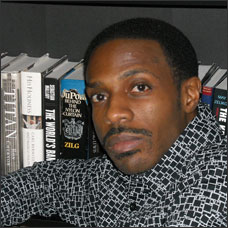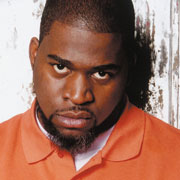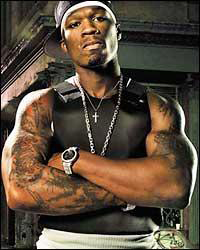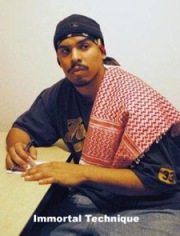Jasiri X returns to the mic with M1 of dead prez to do a song that focuses on the conflict in Egypt.. here’s their new song and video..let us know what you think
http://www.youtube.com/watch?v=mu7eQyasgw0
Jasiri X Featuring M-1 of Dead Prez “We All Shall Be Free” Produced by Drum Gang Productions.
LYRICS
 Jasiri X
Jasiri X
Revolution’s not an act it’s an actual fact
an idea that burns until it turns blacker than black
the truth bearer new era like the back of ya hat
the true terror who’ll scare ya without packing a gat
through the barrier one carrier then it spreads like malaria
bury us with no fear of oppression every tear is a weapon
When God hears it a blessin
Every tyrant is destined to die that’s connected to violent aggression
if arrested remain silent when questioned the wisest lesson
Freedom’s the highest expression of life in the present
that’s why worldwide the riots are spreading
A righteous message like God set the fires from heaven
Uprising we done crying the young riding
when people get the power dictators go run hiding
we just trying to live like human beings
when we protest in peace police shoot up the scene
look at your computer screen you can see it right through the stream
Let our forming be a warning to every brutal regime
M-1
It’s a simple math equation it’s scientific OK
you put the power in the hands of the people its liberation
and even if you take it away its multiplication
repression breeds resistance and this is our situation
I’m an expert on exploitation mater of ghetto misery
a miracle of modern enslavement given our history
the fire through the wire bullets bombs and the liars
the snitches he counterinsurgency mad vicious
they kill us the freedom fighters but can’t kill the revolution
they put crack in our community laughing like it’s amusing
but I don’t see nothing funny the crackers that’s on the money
they only wanna keep us mis-educated like Sonny
They see how we never give up and wonder just how we do it
f#ck a roach we’re the scarabs the beetle up out the ruins
you can hear it in our music is resilience part of our experience
you can call it the freedom experiment
you hear it but do you feel it
either join with it or fear it
but I want it in my lifetime period.











